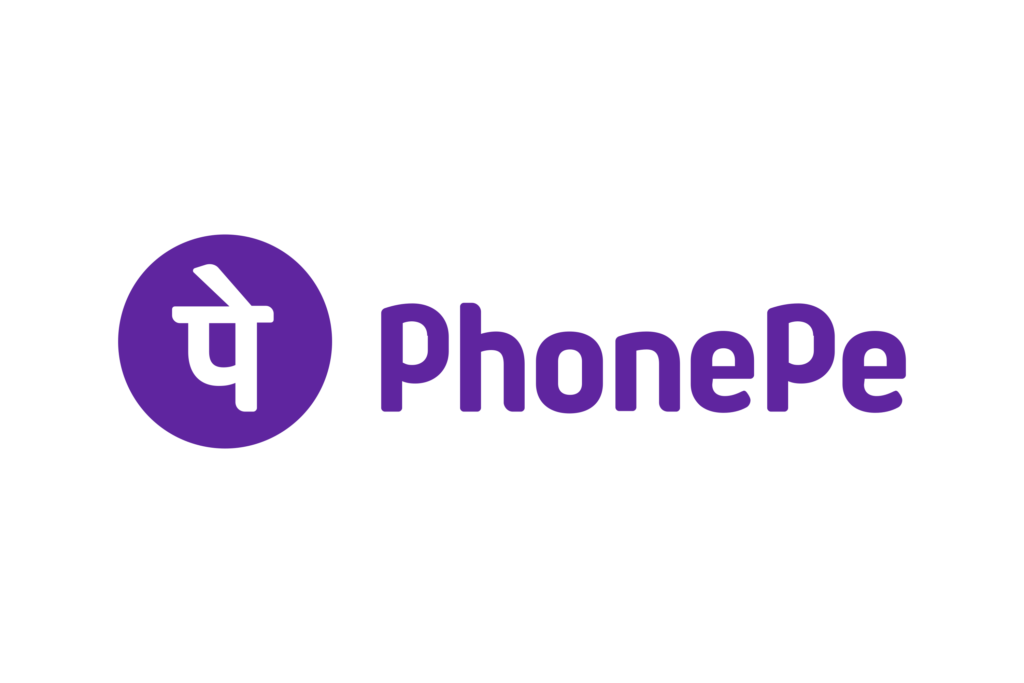Zerodha, India’s largest retail stock brokerage firm, faced a significant cybersecurity incident in 2021. The event, a technical glitch within its trading platform, occurred during a period of heightened market volatility and raised substantial concerns about the security of online trading platforms and their impact on investor confidence.
This case study explores the incident, Zerodha’s proactive cybersecurity measures, and how cyber liability insurance played a pivotal role in mitigating financial losses and liabilities.
Background of Zerodha
Zerodha revolutionised the brokerage industry in India by offering discount brokerage services with a technology-driven approach. With over 5 million clients, it holds a substantial share of the retail trading market.
- Founded: 2010
- Headquarters: Bangalore, India
- Services: Retail stock brokerage, mutual funds, and commodity trading
- Market Position: Largest retail stock brokerage firm in India
The Incident
In 2021, Zerodha experienced a cybersecurity incident due to a vulnerability in its trading platform. This vulnerability was exploited during a period of significant market volatility, causing a technical glitch that affected trading activities and raised alarms about the security of online trading platforms.
Key Details of the Incident:
- Date of Incident: 2021
- Type of Vulnerability: Technical glitch in the trading platform
- Impact: Disruption of trading activities, potential financial losses for customers, heightened concerns about cybersecurity in online trading
Immediate Response and Containment
Zerodha’s response to the incident was swift and focused on minimizing damage and restoring normal operations.
Steps Taken:
- Incident Detection
The detection of the cybersecurity incident at Zerodha was a crucial first step in managing the crisis. Zerodha’s cybersecurity team employed advanced monitoring tools and threat detection systems designed to identify unusual activities and potential vulnerabilities in real time. When the glitch occurred, these systems alerted the team to the anomaly.
Key Aspects of Incident Detection:
- Real-Time Monitoring: Zerodha utilized sophisticated real-time monitoring tools to continuously oversee the trading platform’s operations. These tools detected irregularities and deviations from normal behavior.
- Threat Intelligence Integration: The threat detection systems were integrated with threat intelligence feeds, providing insights into the latest cyber threats and enabling the team to quickly identify potential vulnerabilities.
- Swift Identification: Upon detection, the cybersecurity team rapidly analyzed the alert, confirming the presence of a technical glitch that could be exploited by malicious actors.
- Containment Measures
Following the detection, Zerodha’s cybersecurity team immediately enacted containment measures to mitigate the impact of the glitch and prevent further exploitation. These steps were critical in ensuring that the vulnerability did not lead to more extensive damage.
Key Containment Steps:
- Isolating Affected Systems: The systems identified as vulnerable were quickly isolated from the rest of the network to prevent the glitch from spreading.
- Patch Deployment: The team developed and deployed patches to address the specific vulnerability, thereby closing the security gap.
- Enhanced Monitoring: Increased monitoring of the affected systems was implemented to ensure no further exploitation attempts occurred during the containment process.
- Temporary Service Suspension: In some cases, Zerodha temporarily suspended certain services to ensure the safety of customer assets and data while containment measures were fully implemented.
- Communication
Maintaining transparency and trust with clients during a cybersecurity incident is vital. Zerodha prioritized clear and prompt communication with its clients to keep them informed about the incident and the steps being taken to address it.
Key Communication Strategies:
- Immediate Notification: Zerodha sent out immediate notifications to all affected clients, informing them about the glitch and the potential risks involved.
- Regular Updates: The company provided regular updates through multiple channels, including emails, social media, and its website, to keep clients informed of the progress being made in resolving the issue.
- Customer Support: Dedicated customer support lines were established to address client concerns and provide assistance related to the incident.
- Transparency: Zerodha emphasized transparency by openly sharing the nature of the glitch, the steps taken to mitigate it, and the measures being implemented to prevent future occurrences.
- System Audits
Post-incident, Zerodha conducted comprehensive security audits to assess the extent of the breach and identify areas for improvement. These audits were crucial in understanding the root cause of the incident and enhancing the overall security posture of the trading platform.
Key Aspects of System Audits:
- Full Scope Assessment: The audits covered all aspects of the trading platform, including software, hardware, network infrastructure, and third-party integrations.
- Vulnerability Scanning: Detailed vulnerability scans were performed to identify any other potential security weaknesses that could be exploited.
- Incident Analysis: The audit team conducted a thorough analysis of the incident to understand how the glitch occurred, its impact, and the effectiveness of the initial response.
- Recommendations: Based on the findings, the audit team provided a comprehensive set of recommendations for strengthening the security framework, including updates to security protocols, additional training for employees, and improvements in incident response procedures.
Table: Incident Response and Containment Actions
| Response Phase | Key Actions | Outcome |
| Incident Detection | Real-time monitoring, threat intelligence integration | Swift identification of the technical glitch |
| Containment | Isolating systems, deploying patches, enhanced monitoring | Prevention of further exploitation, minimized impact |
| Communication | Immediate notification, regular updates, customer support | Maintained transparency, ensured client trust |
| System Audits | Full scope assessment, vulnerability scanning, incident analysis | Identification of root cause, recommendations for improvement |
Cybersecurity Measures and Proactive Strategies
Zerodha had already implemented several proactive cybersecurity measures prior to the incident. These included:
- Regular Security Audits: Periodic audits to identify and rectify vulnerabilities.
- Advanced Threat Detection Systems: Deployment of sophisticated tools to detect and mitigate cyber threats in real-time.
- Employee Training: Regular training sessions for employees to enhance their awareness of cybersecurity practices.
- Customer Education: Initiatives to educate customers about safe trading practices and how to recognize potential threats.
The Role of Cyber Liability Insurance
Zerodha’s cyber liability insurance policy played a crucial role in mitigating the financial impact of the incident. This policy provided comprehensive coverage for various aspects of the breach.
Coverage Details:
- Financial Losses: Compensation for customers who incurred financial losses due to the glitch.
- Security Audit Costs: Coverage of expenses related to conducting thorough security audits.
- Remedial Measures: Funds for implementing necessary remedial measures to enhance platform security.
- Legal Expenses: Coverage for legal fees associated with handling the incident.
- Regulatory Fines: Payment of any fines imposed by regulatory bodies.
Financial Impact and Recovery
The cyber liability insurance policy significantly alleviated the financial burden on Zerodha, allowing the company to focus on recovery and improvement rather than the immediate financial repercussions.
Table: Financial Impact Breakdown
| Category | Estimated Cost (INR) | Coverage Provided (INR) | Out-of-Pocket Cost (INR) |
| Customer Compensation | 10,000,000 | 9,500,000 | 500,000 |
| Security Audits | 2,000,000 | 1,800,000 | 200,000 |
| Remedial Measures | 5,000,000 | 4,750,000 | 250,000 |
| Legal Expenses | 3,000,000 | 2,850,000 | 150,000 |
| Regulatory Fines | 1,500,000 | 1,425,000 | 75,000 |
| Total | 21,500,000 | 20,325,000 | 1,175,000 |
Lessons Learned and Strategic Enhancements
The incident served as a wake-up call for Zerodha, prompting the company to reassess its cybersecurity strategies and risk management frameworks.
Key Lessons:
- Importance of Regular Audits: Continuous and rigorous security audits are crucial to identifying and addressing vulnerabilities promptly.
- Comprehensive Risk Management: Cyber liability insurance proved essential in mitigating financial risks and should be a standard practice for online trading platforms.
- Enhanced Communication: Transparent communication with customers during and after the incident helped in maintaining trust and confidence.
- Investment in Technology: Ongoing investment in advanced cybersecurity technologies is necessary to stay ahead of potential threats.
Strategic Enhancements Post-Incident
Post-incident, Zerodha implemented several strategic enhancements to bolster its cybersecurity framework.
Enhancements:
- Advanced Threat Intelligence: Integration of advanced threat intelligence tools to better anticipate and mitigate cyber threats.
- Enhanced Security Protocols: Strengthening of existing security protocols and the introduction of new measures to safeguard customer data and assets.
- Incident Response Plan: Development of a more robust incident response plan to ensure rapid and effective response to future incidents.
- Partnerships with Cybersecurity Firms: Collaboration with leading cybersecurity firms to leverage their expertise and enhance Zerodha’s security posture.
Table: Strategic Enhancements Implemented
| Area of Enhancement | Description |
| Advanced Threat Intelligence | Implementation of AI-driven threat detection systems |
| Security Protocols | Strengthening of encryption and authentication methods |
| Incident Response | Development of a detailed and tested response plan |
| Cybersecurity Partnerships | Collaboration with top cybersecurity firms |
Conclusion
The 2021 cybersecurity incident at Zerodha highlighted the importance of robust cybersecurity measures and the value of cyber liability insurance. Despite the initial disruption, Zerodha’s proactive approach, comprehensive risk management strategies, and transparent communication helped the company navigate the crisis effectively. The incident underscored the need for continuous investment in cybersecurity and served as a valuable learning experience for Zerodha and the broader industry.
By leveraging cyber insurance and implementing strategic enhancements, Zerodha not only mitigated the financial impact of the breach but also reinforced its commitment to safeguarding customer assets and data. This case study demonstrates the critical role of preparedness and resilience in maintaining trust and confidence in the rapidly evolving landscape of online trading platforms.
FAQs
- What was the nature of the cybersecurity incident faced by Zerodha in 2021?
The incident involved a technical glitch in Zerodha’s trading platform during a period of heightened market volatility, leading to concerns about the security of online trading platforms and potential financial losses for customers.
- How did Zerodha respond to the cybersecurity incident?
Zerodha responded swiftly by identifying the vulnerability, implementing containment measures, conducting comprehensive security audits, and communicating transparently with its clients.
- What role did cyber liability insurance play in Zerodha’s recovery?
Cyber liability insurance helped Zerodha mitigate financial losses by covering costs related to security audits, remedial measures, customer compensation, legal expenses, and regulatory fines.
- What strategic enhancements did Zerodha implement post-incident?
Zerodha integrated advanced threat intelligence tools, strengthened security protocols, developed a robust incident response plan, and partnered with leading cybersecurity firms to enhance its security posture.
- What lessons were learned from the Zerodha cybersecurity incident?
Key lessons included the importance of regular security audits, the necessity of comprehensive risk management strategies like cyber insurance, the value of transparent communication with customers, and the need for continuous investment in advanced cybersecurity technologies.
Click here, to know more about PhonePe Cybersecurity Resilience and Risk Management.









